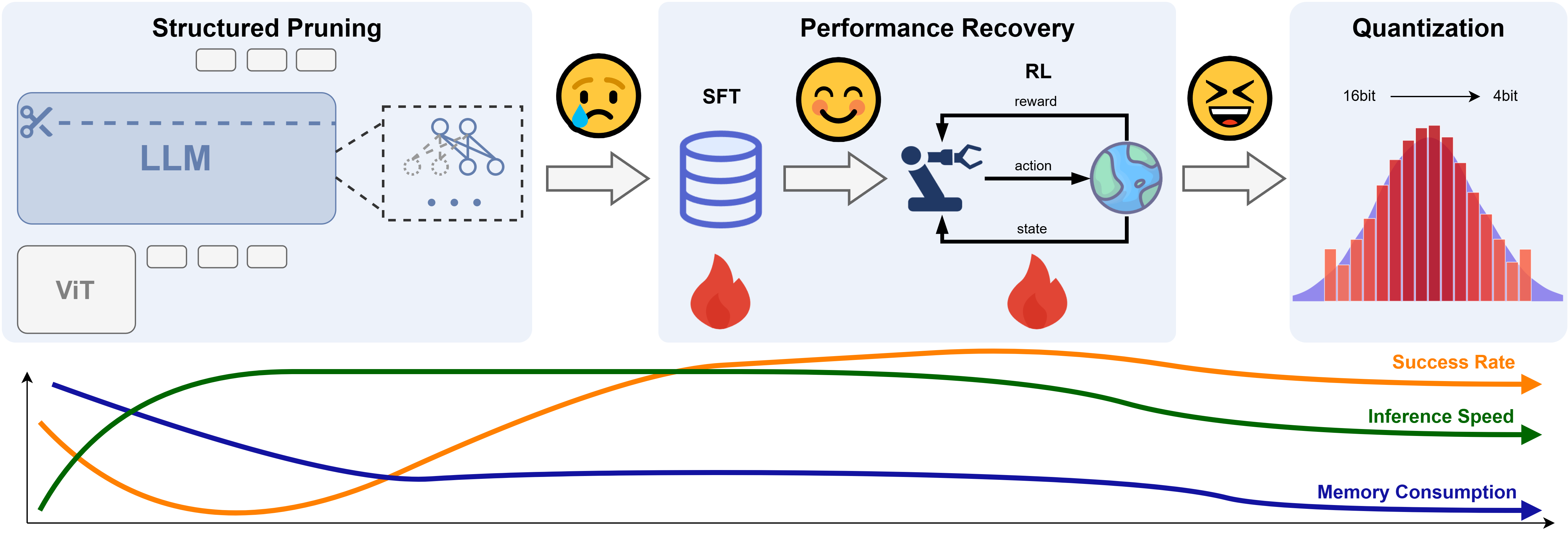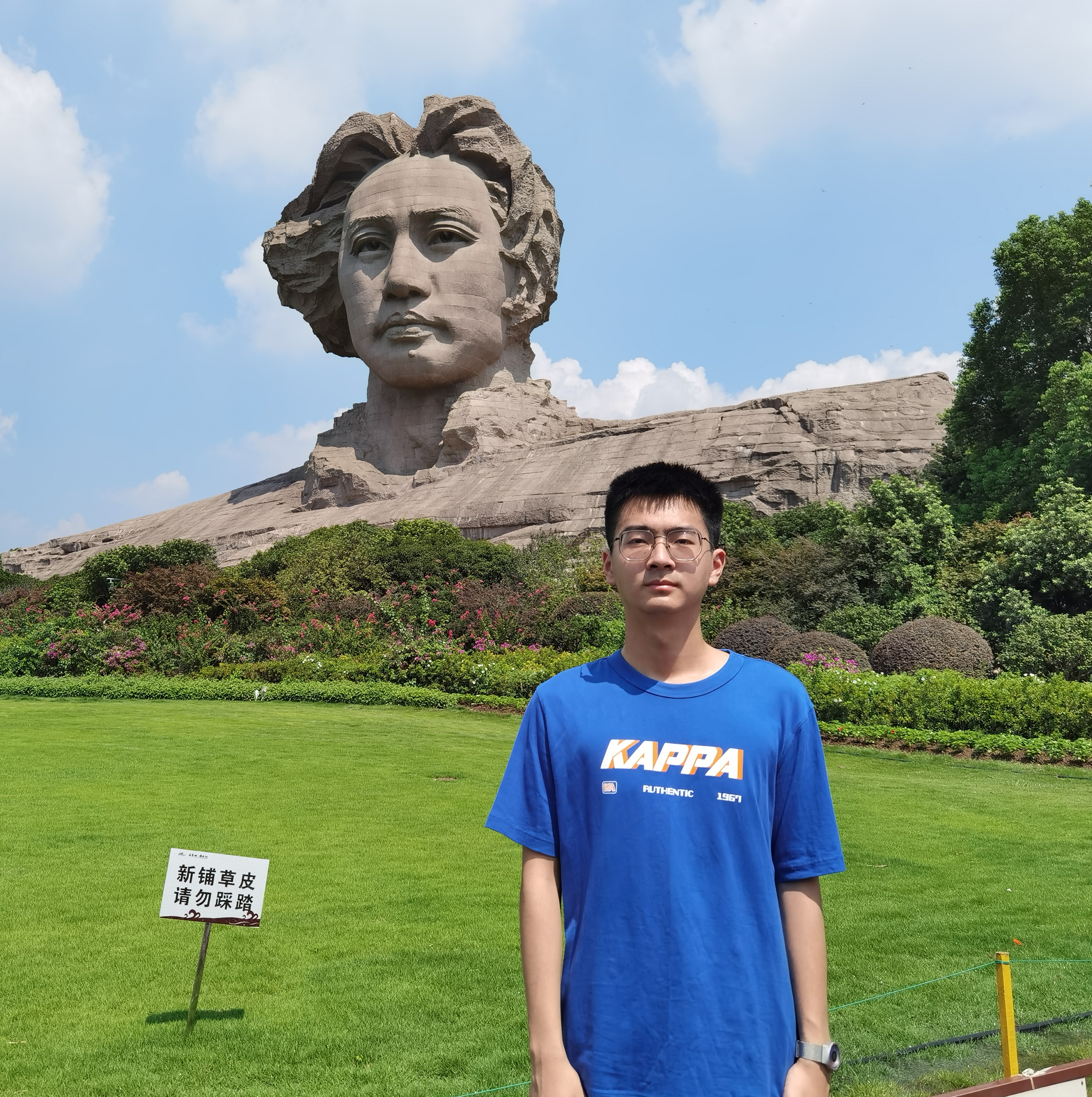
Vision-Language-Action models (VLA) have demonstrated remarkable capabilities and promising potential in solving complex robotic manipulation tasks. However, their substantial parameter sizes and high inference latency pose significant challenges for real-world deployment, particularly on resource-constrained robotic platforms. To address this issue, we begin by conducting an extensive empirical study to explore the effectiveness of model compression techniques when applied to VLAs. Building on the insights gained from these preliminary experiments, we propose RLRC, a three-stage recovery method for compressed VLAs, including structured pruning, performance recovery based on SFT and RL, and further quantization. RLRC achieves up to an 8x reduction in memory usage and a 2.3x improvement in inference throughput, while maintaining or even surpassing the original VLA’s task success rate. Extensive experiments show that RLRC consistently outperforms existing compression baselines, demonstrating strong potential for on-device deployment of VLAs.
